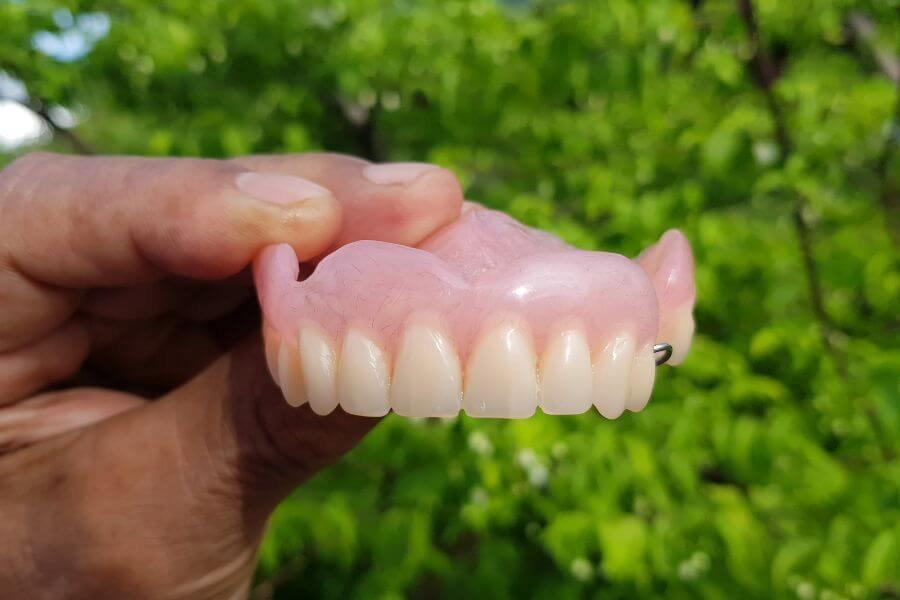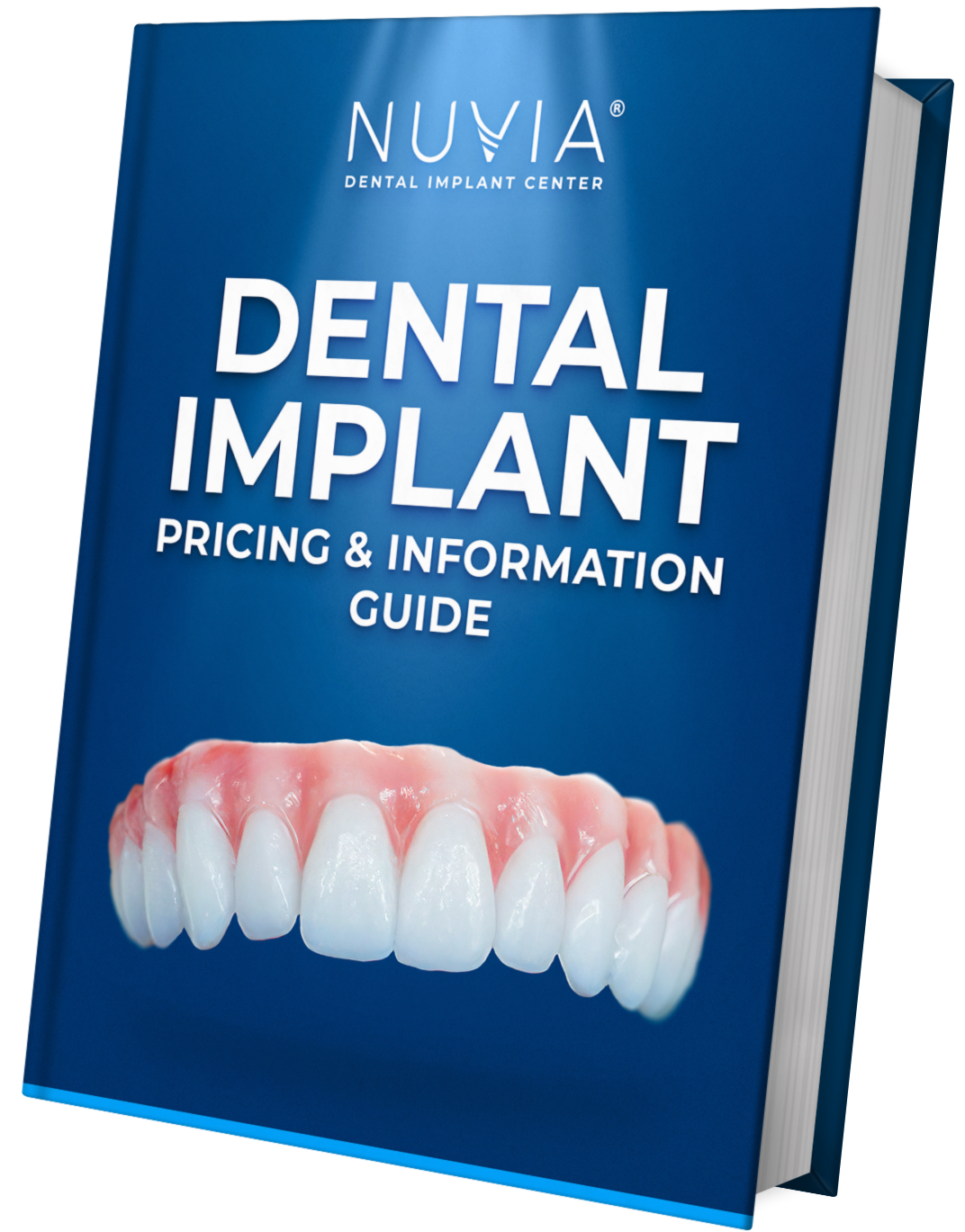
Should I Trade My Dentures For Dental Implants?

A bright beaming smile isn’t just a healthy smile, its one that gives off a youthful radiance and a sense of self-confidence that exudes from the inside out.
The right set of teeth can help you look and feel your best, while enabling you to enjoy all the foods you love to treat yourself to.
For those with imperfect, missing, or failing teeth, dentures are often the go-to option for a quick temporary solution. Whether out of convenience, price, or ease of access, many people initially opt for dentures (despite the sometimes overwhelmingly greater benefits of dental implants).
Thing is, unlike dental implants, dentures have a limited lifespan. At some point, everyone with dentures will have to decide whether or not to replace them with another set of dentures, or upgrade to dental implants. In other situations, those with dentures may choose to get dental implants despite their dentures performing as they should.
Why would someone consider this? And if you have dentures, when should you consider trading them in for implants?
In this guide, we’ll explore both of those questions and get you the answers you need to make the right choice for your own oral health and wellness.
Trading Dentures for Implants: When is the right time?
Not everyone is a good fit for full mouth dental implants, and for those people, dentures may be the next best alternative. But for those who have lived with dentures for a while, they often wonder just how green the grass really is on the other side.
Are dental implants the right next move? And when?
For all of their benefits, dentures fall short of mimicking your natural teeth. They can be cumbersome, tedious to maintain, require glues, and can be downright uncomfortable at times. Not to mention they can slide and move around, making it difficult to enjoy certain foods. And as if that weren’t enough, they can result in bone resorption, changing the structure of your face, resulting in a sagging aged appearance.
With full mouth dental implants, you can kiss all of those aforementioned issues goodbye for good. Let’s take a look at how and when to get started.
Signs It Might Be Time for the Switch:
Age of Dentures: Your dentures are between 5-7 years old. The American Dental Association suggests replacement for proper fit every 5-7 years.
Comfort: Wearing dentures for long periods of time can result in sores or sensitivity around the gums and oral cavity, as well as put tension on your jaws and underlying nerves and tissues. If dentures are no longer comfortable for you, now might be the time to consider a switch.
Damage: Worn, damaged or broken dentures can reduce your ability to eat, chew and speak, as well as negatively impact your oral health and wellness. Instead of investing in a whole new pair, now might be a good time to reconsider full mouth dental implants as a permanent alternative.
Concerns About an Aged Face: Unlike implants and your own natural roots, dentures don’t give your jaw the needed stimuli to maintain proper bone density. Over time this can result in a sagging, aged appearance that alters your facial features in an unflattering way.
Convenience: For some, the tedious caring for dentures is a hassle in and of itself. Dealing with soaking solutions, glues, and removing them at night can be a not very delightful routine. By contrast, dental implants require no further maintenance than for your own natural pearly whites. Simple brushing and flossing does the trick.

The Next Step: A Consult with a Dental Implant Center
Consulting a reputable dentist is a necessary first step in making the transition from dentures to implants. Not only will they make sure that you’re a good candidate for dental implants, but they will also be able to explain the various types and options available and what path will best fit your goals.
After a thorough examination of your teeth, gums and bone structure, your dentist will put together a personalized plan for your implants, and will address any questions or concerns you might have.
Improved Quality of Life: Trading Dentures for Implants
Despite it’s benefits, the drawbacks with dentures are many. They have a tendency to wear down over time, they can slip if not secured properly by adhesive, are awkward to clean, and taking them out every night can be cumbersome. They can also cause significant issues with comfortability, and even cause sores, pain and inflammation due to rubbing and pressure placed on the gums and underlying tissues.
These issues and more have many with dentures considering trading them for dental implants, a permanent tooth replacement solution that virtually mimics your natural pearly whites in all areas of performance and aesthetics.
And due to the advances in implantology, making the transition from dentures to implants is easier and more affordable than ever before.
So when should dentures be exchanged for dental implants?
Although this is a very personal choice, and one that should be discussed with your dentist, many who have already made the switch would say, “As soon as possible”. As soon as you want to take back control of what you can eat. As soon as you decide that you want an improved quality of life.
Look forward to a brighter future and a brighter smile with full mouth dental implants from Nuvia Dental Implant Center. Give us a call today to learn more.
More Articles Like This one


Are Dentures The Best Option For Elderly People? Pros and Cons







